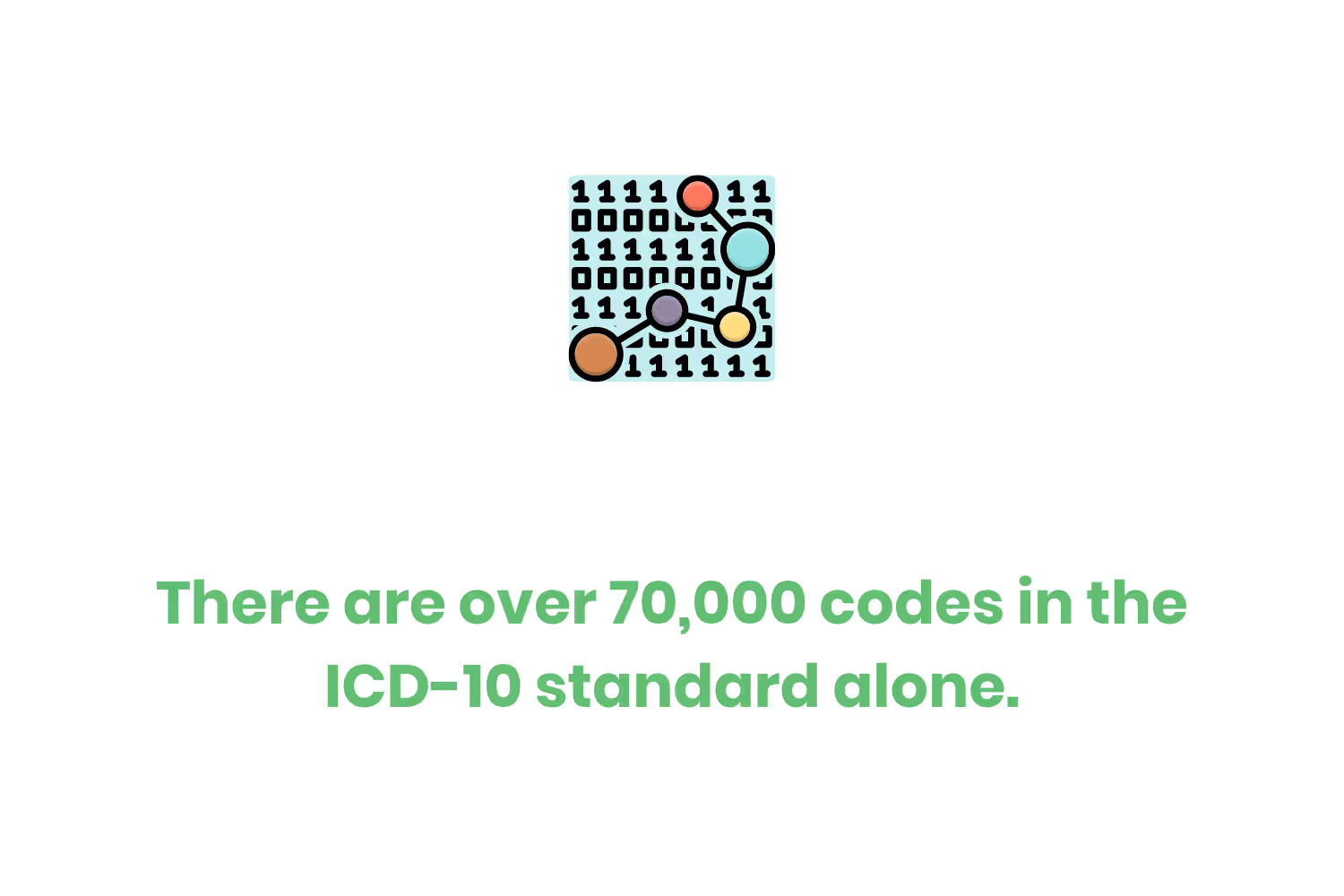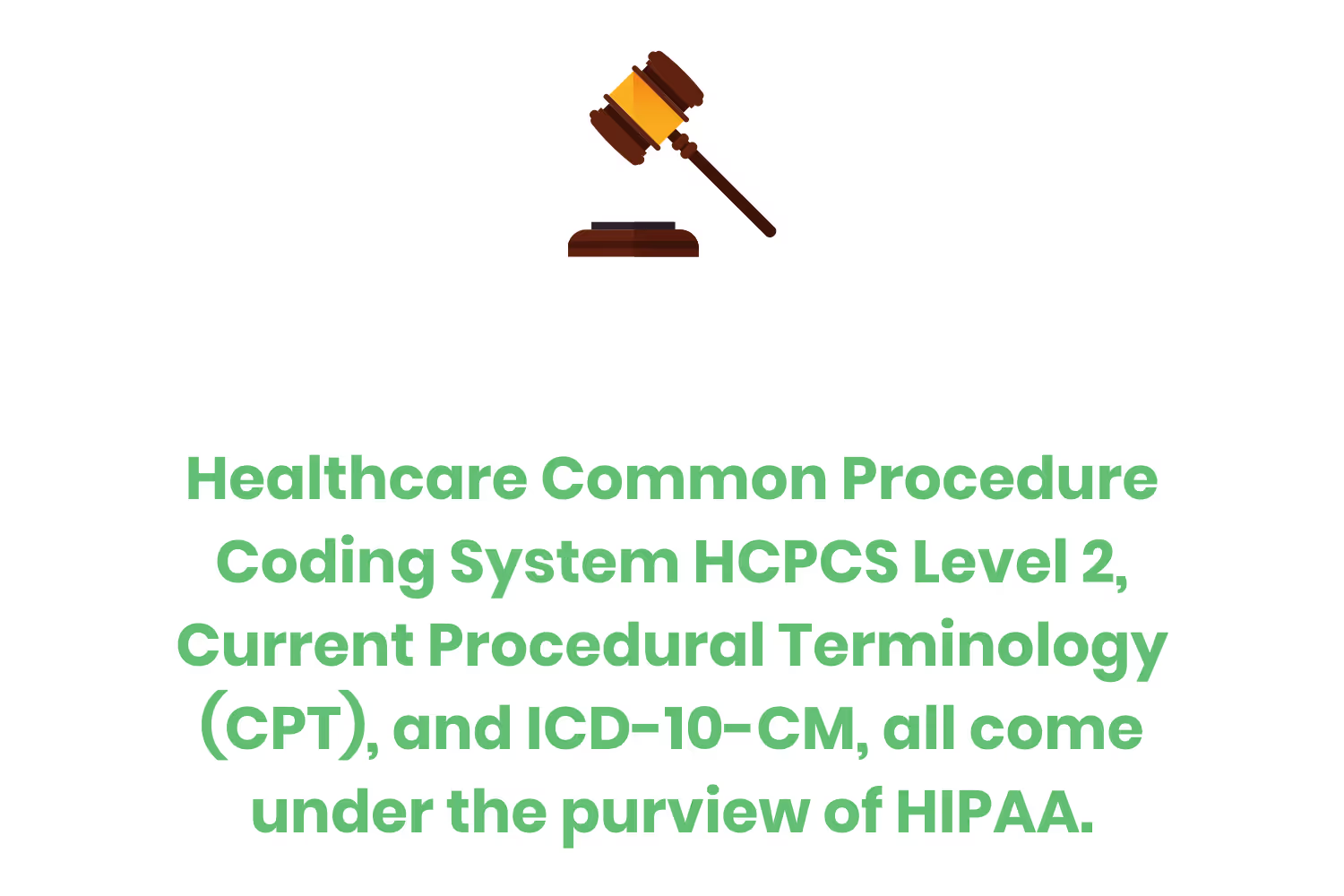Why Medical Coding is Important: A CPC's Perspective
Medical coding involves transforming medical procedures, services, diagnoses, and equipment into universal, alphanumeric codes. It has become one of the most critical facets of the healthcare industry today.

Medical coding has become one of the most critical facets of the healthcare industry today.
This niche involves transforming medical procedures, services, diagnoses, and equipment into universal, alphanumeric codes. The details about the procedure & diagnosis mainly come from…
- Patient medical records
- Physician's notes
- Lab reports
During a medical billing process, these professionals apply codes and review them to ensure accuracy. The process involves abstracting information from patient records and assigning appropriate, corresponding codes.
They’re also responsible for accurate documentation of records as well as medical billing. Medical coders facilitate the easy storage and retrieval of healthcare data. Their actions aids in evidence-based decision making.
About The Medical Coding Career
Medical coding as a whole expects to grow at a 13% rate for the next decade. They bridge the gap between healthcare facilities and insurance companies. Your primary job is to generate universal codes after analyzing patient records. You also help secure payments from insurance companies.
Not just that, you will handle critical tasks such as…
- Managing patient health information (PHI)
- Updating records
- Adhering to compliance requirements
Of course, people often ask about the salary within this field. Well, a report from the Bureau of Labor Statistics (BLS) places the average starting at $20.50 per hour. There aren’t many requirements to get into this career, you don’t need a college degree. Instead, all you have to do is get an online medical coding certification.

Medical coders deal with a huge system involving thousands of codes.
Your problem-solving skills can help you ace the task. Luckily, you’ll have access to a repository of codes that fit the procedural description. These are more formally known as the International Classification of Diseases Index (ICD).
Medical coders can work in a variety of healthcare settings. You may work in hospitals, clinics, physician's offices, or directly from home.
The Importance of Medical Coding
Patient Care
Why is medical coding a smart career choice? It enables you to make a difference in the world of healthcare without requiring decades of schooling. Medical coding is critical for patient care since it directly relates to…
- demographic assessments
- treatment outcomes
- the study of diseases
It delves deep into patient data, diagnoses, medications, procedures, treatments, and transforms every bit of information into alphanumeric codes.
Where is this information sourced? Well, the patient data comes from a variety of sources including…
- lab results
- Electronic records
- medical notes
- Transcriptions
- Urinalysis
- Radiologic assessments
- Pathology assessments
The goal is to ensure not just seamless reimbursement but quality healthcare in future visits.
Coding Usage & Documentation
Across different healthcare processes, there are over 70,000 codes in the ICD-10 standard alone. Apart from this, there is the Healthcare Common Procedure Coding System (HCPCS) Level 2 and Current Procedural Terminology (CPT) codes as well.

ICD codes describe illness, injury, or death. CPT codes deal with surgeries, radiology, measurement procedures, anesthesia, etc. HCPCS codes highlight outpatient hospital care and medical aid.
Once a patient receives treatment, diagnosis, or certain services, medical providers take note in a record. Coders then assign relevant codes to the items so that accurate claims can go to the insurance companies.
Regulatory Compliance
Medical coders must adhere to HIPAA and other compliance guidelines. The Health Insurance Portability & Accountability Act or HIPAA is a federal law that mandates the creation and adherence to national standards for protecting PHI.
You have to keep compliance in mind on a daily basis when working within this field.
HIPAA holistically covers patient confidentiality and also covers electronic medical records. Medical coders must ensure that the data they’re using is safe and isn’t consumed by someone who doesn’t have proper authorizations.
Healthcare Common Procedure Coding System HCPCS Level 2, Current Procedural Terminology (CPT), and ICD-10-CM, all come under the purview of HIPAA.

Conclusion
A career in medical coding and billing is a great way to enter the healthcare industry. For every procedure or diagnosis patients receive, medical coders keep their health records updated as per special codes.
Emphasize your product's unique features or benefits to differentiate it from competitors
In nec dictum adipiscing pharetra enim etiam scelerisque dolor purus ipsum egestas cursus vulputate arcu egestas ut eu sed mollis consectetur mattis pharetra curabitur et maecenas in mattis fames consectetur ipsum quis risus mauris aliquam ornare nisl purus at ipsum nulla accumsan consectetur vestibulum suspendisse aliquam condimentum scelerisque lacinia pellentesque vestibulum condimentum turpis ligula pharetra dictum sapien facilisis sapien at sagittis et cursus congue.
- Pharetra curabitur et maecenas in mattis fames consectetur ipsum quis risus.
- Justo urna nisi auctor consequat consectetur dolor lectus blandit.
- Eget egestas volutpat lacinia vestibulum vitae mattis hendrerit.
- Ornare elit odio tellus orci bibendum dictum id sem congue enim amet diam.
Incorporate statistics or specific numbers to highlight the effectiveness or popularity of your offering
Convallis pellentesque ullamcorper sapien sed tristique fermentum proin amet quam tincidunt feugiat vitae neque quisque odio ut pellentesque ac mauris eget lectus. Pretium arcu turpis lacus sapien sit at eu sapien duis magna nunc nibh nam non ut nibh ultrices ultrices elementum egestas enim nisl sed cursus pellentesque sit dignissim enim euismod sit et convallis sed pelis viverra quam at nisl sit pharetra enim nisl nec vestibulum posuere in volutpat sed blandit neque risus.

Use time-sensitive language to encourage immediate action, such as "Limited Time Offer
Feugiat vitae neque quisque odio ut pellentesque ac mauris eget lectus. Pretium arcu turpis lacus sapien sit at eu sapien duis magna nunc nibh nam non ut nibh ultrices ultrices elementum egestas enim nisl sed cursus pellentesque sit dignissim enim euismod sit et convallis sed pelis viverra quam at nisl sit pharetra enim nisl nec vestibulum posuere in volutpat sed blandit neque risus.
- Pharetra curabitur et maecenas in mattis fames consectetur ipsum quis risus.
- Justo urna nisi auctor consequat consectetur dolor lectus blandit.
- Eget egestas volutpat lacinia vestibulum vitae mattis hendrerit.
- Ornare elit odio tellus orci bibendum dictum id sem congue enim amet diam.
Address customer pain points directly by showing how your product solves their problems
Feugiat vitae neque quisque odio ut pellentesque ac mauris eget lectus. Pretium arcu turpis lacus sapien sit at eu sapien duis magna nunc nibh nam non ut nibh ultrices ultrices elementum egestas enim nisl sed cursus pellentesque sit dignissim enim euismod sit et convallis sed pelis viverra quam at nisl sit pharetra enim nisl nec vestibulum posuere in volutpat sed blandit neque risus.
Vel etiam vel amet aenean eget in habitasse nunc duis tellus sem turpis risus aliquam ac volutpat tellus eu faucibus ullamcorper.
Tailor titles to your ideal customer segment using phrases like "Designed for Busy Professionals
Sed pretium id nibh id sit felis vitae volutpat volutpat adipiscing at sodales neque lectus mi phasellus commodo at elit suspendisse ornare faucibus lectus purus viverra in nec aliquet commodo et sed sed nisi tempor mi pellentesque arcu viverra pretium duis enim vulputate dignissim etiam ultrices vitae neque urna proin nibh diam turpis augue lacus.




